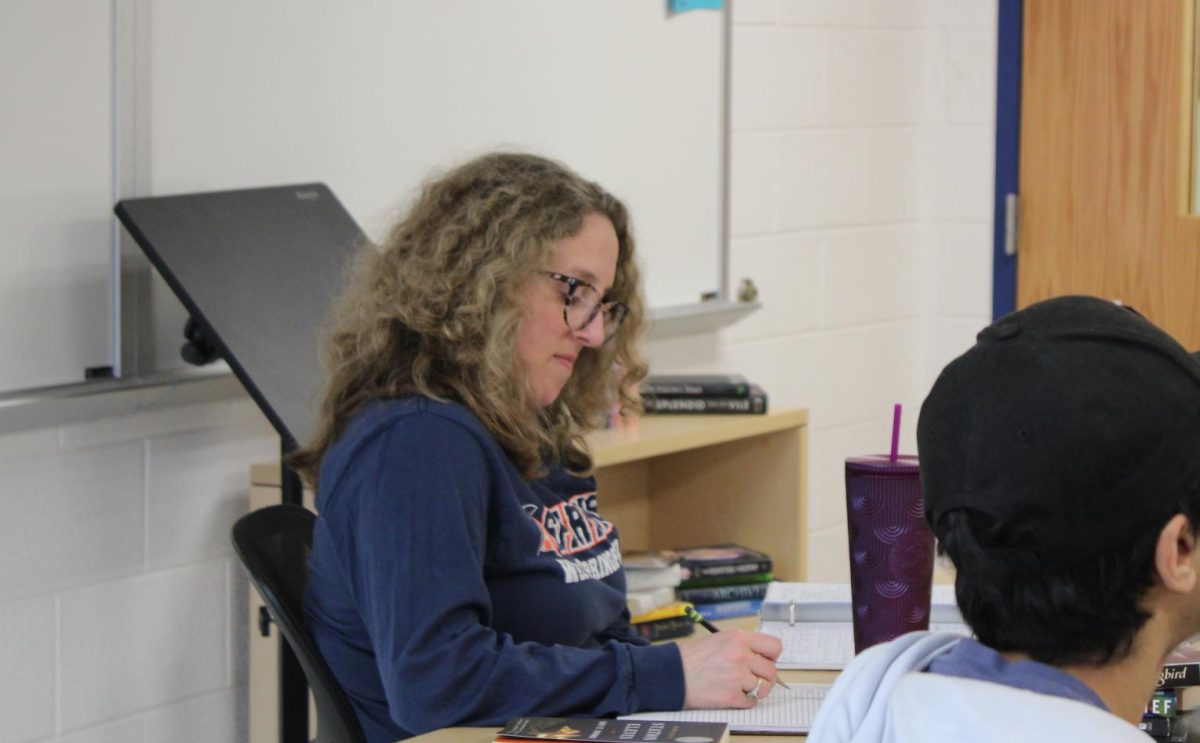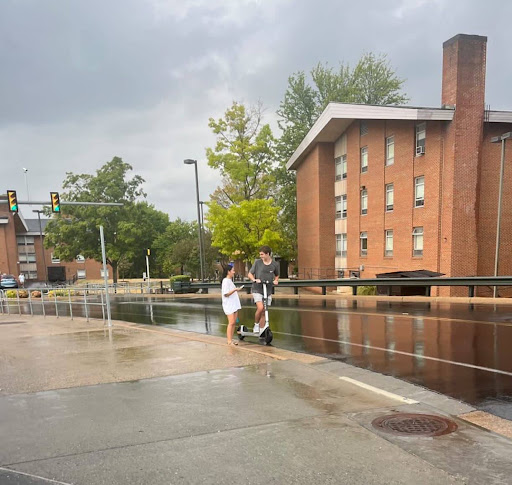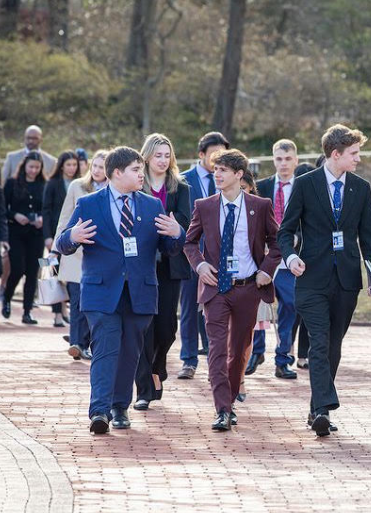Teaching has gained a reputation for being a low-paying and energy-intensive occupation. Regardless, many continue to show up Monday through Friday with the intention of educating.
If given the opportunity to go back in time 22 years ago, math instructor Shannon Rapoza would choose the same profession: a teacher.
“I’ve always known I wanted to be a teacher. In high school, I had such a good experience and realized this is where I want to be. I want to hang out with teenagers all day,” said Rapoza.
After watching the way her mom loved to teach and meeting an enthusiastic calculus teacher her senior year, Rapoza had found her calling. By combining her love for math and high school into one profession, she was able to embark on a journey of education.
According to The Intergenerational Transmission of Teaching Abstract children whose mothers were teachers are 9% more likely to become a teacher rather than children of non-teachers.
In parallel to Rapoza, English teacher Alexa Whitlock grew up as an assistant to her favorite teacher, her mother. Both teachers saw firsthand the importance of being an educator and took on the path their parents had followed without hesitation.
“I was running around the halls, helping teachers set up classrooms, and I was always there after school waiting for my mom. I was always super comfortable inside a school,” said Whitlock.
On the other hand, many teachers never thought they would become educators.
“Teaching just wasn’t on my radar, but while working on my doctorate, I realized the more expertise I got, the more I wanted to share it,” said science teacher Desiree Di Mauro.
Before becoming a teacher, Di Mauro worked for the United States Environmental Protection Agency’s Office of Water, for government contractors, as manager for the Natural Resources program in the Coast Guard and as an environmental program educator. While Di Mauro had not yet gained the formal title of teacher, she was educating newcomers on the importance of environmental science, gradually steering her toward the path of education.
During lessons, teachers are able to immerse themselves in the unique ideas and comments students share throughout every class. The thrill of interacting with others who are passionate to learn about what is being taught is a love that many teachers share.
“Coming to a job where everyone’s opinion and background is different is the best part. I love environments where I’m constantly learning from others,” said history teacher Mark Witzel.
Teaching is a people-oriented job. From 8 a.m. to 3 p.m., teachers must educate a variety of different students with different strengths, weaknesses and experiences. While they are teaching the next generation, teachers are constantly met with new perspectives. Personal interactions make the job worthwhile, but similar to all jobs, there are always downsides.
“There’s always a lack of respect for teachers in American society. Many people say ‘those who can’t, teach,’” said Whitlock.
Although many teachers are equipped with both a bachelor’s and master’s degree, their expertise in their profession continues to be questioned. Additionally, the salary of teachers continues to place a shadow over the profession.
“I don’t teach for the money. I became a teacher after I retired from the military and began to receive my retirement money. The money I get for simply waking up every day from my retirement is more than my teacher salary. Thousands of dollars more,” said Witzel.
While this profession continues to be debated on its importance, new generations of teachers are ready to take on the responsibility passed down by millions.
“I want to do something that would help the world. Plus, teaching is something I enjoy. It’s what I want to do,” said senior Jack Meli who will be studying Early Elementary education at Temple University in the Fall.
Categories:
Educators reflect, offer insight on the profession
Photo courtesy of Ben Bradfield
English teacher and department chair Katie Newman instructs and scores a seventh period freshmen English Honors class during a socratic seminar.
0







